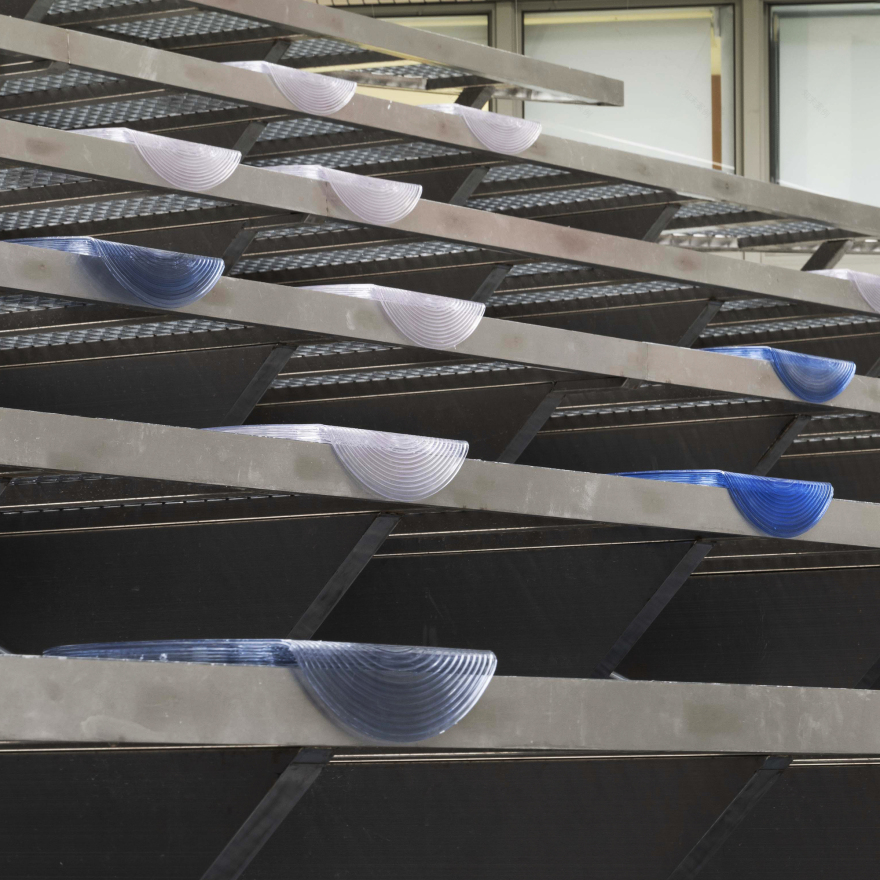查看完整案例

收藏

下载

翻译
Architects:JC. Architecture & Design
Area:50m²
Year:2024
Photographs:Kuomin Lee
Lead Architects:Johnny Chiu, Nora Wang
Design Team:Johnny Chiu, Nora Wang, Jube Chu, Hank Li
City:光明里
Country:Taiwan
Text description provided by the architects. Dr. Yen-Son (Paul) Huang Courtyard is a memorial design dedicated to the Tainan native of the same name, who is best known as the developer of PiE Design Systems and NOVAS Software, in addition to being the major founder of ECAD and the creator of the Dracula physical design verification system. He was a graduate of the second generation of National Yang Ming Chiao Tung University (NYCU) in Hsinchu, Taiwan, and was one of the most successful technologists and serial entrepreneurs in Taiwan's semiconductor industry. During his lifetime, Dr. Yen-Son (Paul) often shared with his family how grateful he was for the cultivation of NYCU. In gratitude for Dr. Huang's deep affection for his alma mater, the family donated 20 million NTD to establish the atrium, representing Dr. Huang's entrepreneurial spirit. Designed by Taiwanese firm JC. Architecture & Design, the courtyard was revealed at the Department of Electrophysics' 60th anniversary.
This is different from the traditional way of building monuments, which are typically equal-height bronze sculptures, pedestals, and plaques. Monuments as such are often too far removed from the general public to foster a deeper connection, even though they are wonderful gestures to pay respect to a person. With a background in designing public spaces and amenities, JC. took on this challenge to transform the monument into an architectural facility that can be used by everyone while honoring a person and their contributions.
Lifting the Wafer Like a Magic Carpet - The design subverts the conventional approach to designing monuments and forms an amphitheater. Framed like a circle, which was Dr. Huang's favorite shape, it symbolizes perfection and continuity. At the same time, this is the same image of a silicon wafer, whose development was found by Dr. Yen-Son (Paul) Huang. The stainless steel plate is raised off the ground, mimicking a magical carpet where students can sit and fly with their aspirations.
An Outdoor Platform to Explore Infinite Possibilities - Dr. Huang listed the three elements of success: 'study hard’, ‘work hard’ and ‘make good friends’, emphasizing the importance of interaction between people. Following this principle, our design hopes to encourage students to engage in social acts and make good friends while embarking on their academic journey. Dr. Yen-Son (Paul) Huang Courtyard is more than just a monument. It doubles as an open-air theater that can be used by students, staff members, and even visitors. This is where users can brainstorm, communicate, and mingle, making it a hub for ideological collisions and motivating everyone who comes here to discover promising potential.
The Seven Steps to Success - Before reaching the top, there are seven steps that were thought to be seven mental methods to reach success, according to Dr. Huang. These are not simply guidelines for students of National Yang-Ming Chiao Tung University; they serve as motivation for many others to move forward steadily and urge all to guide each other and themselves with a shared vision as they achieve an aspirational life.
道 - Tao (Mission): Committing to fulfill your vision.天 - Trends: Seizing emerging opportunities generated by prevailing trends.地 - Terrain: Securing a favorable strategic position.將 - Leaders: Unifying and leading your team to rally around the vision.法 - Methodology: Creating the best methods to deliver operational excellence and efficiency.容 - Inclusion: Role modeling a leader who is inclusive, insightful, and embraces diversity.易 - Path to Success: Solidifying the elements above to set the stage for the leader to plan, develop, and subsequently dominate the market.
Partnership with ROSO—Embodying the Innovative Spirit of NYCU - The seating is built by the ROSO robot manufacturing laboratory using 3D printing of robotic arms to achieve a unique design. Conveyed by the transparent and gradient blue color, it echoes a sense of the future and high technology through the water wave at the bottom, the clear and smooth line, and the dripping sensation of the arc—showcasing the innovative spirit of the National Yang Ming Chiao Tung University, Department of Electrophysics.
Project gallery
Project location
Address:光明里, Taiwan
客服
消息
收藏
下载
最近























